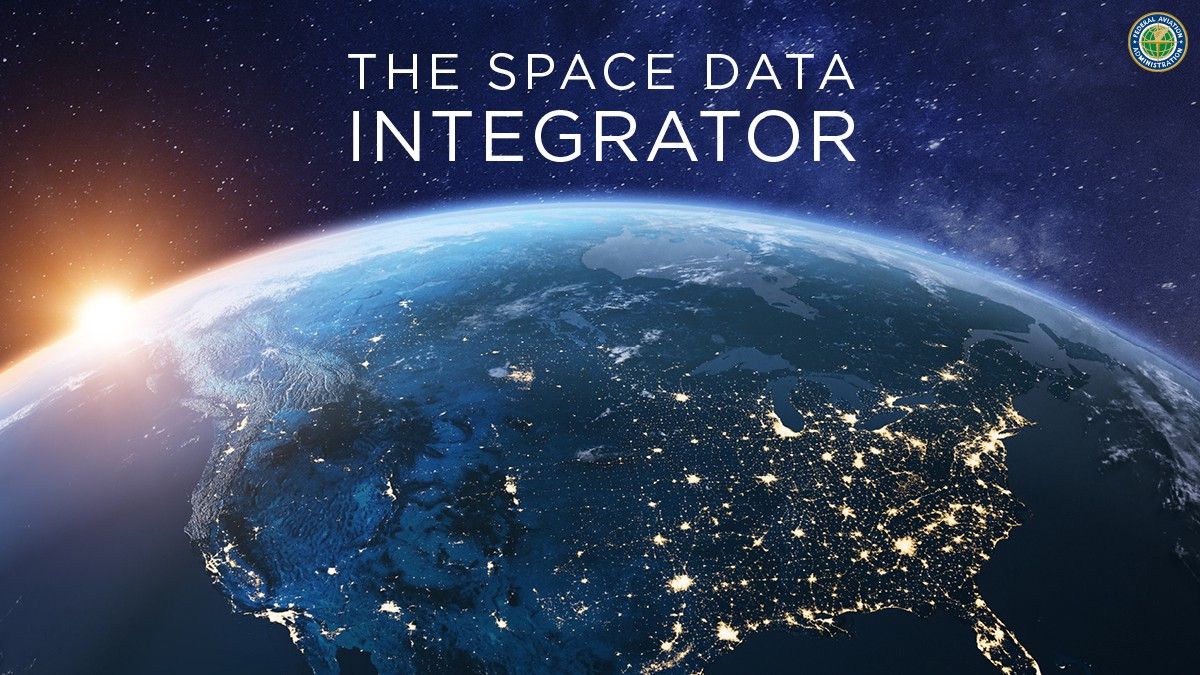
The FAA’s Regulation of Air and Space Travel
Article by Brian Bender July 23, 2021 (politico.com)
• The Federal Aviation Administration has a new capability called the Space Data Integrator program (see FAA data sheet here) coordinating the increase in space launches with the ordinary commercial air traffic. “This is an example of the FAA leaning forward, looking to the future and seeing where we can do better,” says Wayne Monteith, the FAA’s associate administrator for commercial space transportation. “We did our first operational test of [the SDI program] with a SpaceX launch… and reentry. It allows the air traffic organization to much more effectively manage the air space around space launches.”
• The FAA’s Office of Commercial Space Transportation (see FAA data sheet here) is steadily beefing up its capacity to regulate the commercial space industry to keep pace with the exponential growth in space launches. “A decade ago we licensed one launch all year out of my office,” says Monteith, a retired Air Force brigadier general who last ran the 45th Space Wing in Florida. “Five years ago, just 11. Right now, we are averaging an FAA-licensed launch about once every five days.”
• The FAA’s Space Office is comprised with a staff of about 100 and an annual budget of about $32.5 million for operations and an additional $5.7 million for research and development. Monteith reports that since taking over in 2019 he has “completely reorganized” the office for “accountability, efficiency and effectiveness.” However, some leading industry voices and members of Congress say the FAA needs more money and people to keep up with launch licenses and other growing demands for regulatory oversight. While the staff has increased by 15% since 2016, the office’s workload has increased by 400%.
• But what about the UFOs? Is the FAA is tracking spaceships or ‘UAPs’ reported by military pilots in recent years? It’s not an issue that has crossed his desk, Monteith said. But he did say: “The FAA operates the most complex, safest airspace system in the world. If that were something that we needed to do, the FAA would take it on and we’d do it better than anyone else.”
 ‘LEANING FORWARD’: The FAA’s Office of Space Transportation is steadily
‘LEANING FORWARD’: The FAA’s Office of Space Transportation is steadily

beefing up its capacity to regulate the commercial space industry, including reevaluating the types of skill sets and technologies it needs to keep pace with the exponential growth in launches, Wayne Monteith, the FAA’s associate administrator for commercial space transportation, tells us.
“A decade ago we licensed one launch all year out of my office,” says Monteith, a retired Air Force brigadier general who last ran the 45th Space Wing in Florida. “Five years ago, just 11. Right now, we are averaging an FAA-licensed launch about once every five days.” That’s a “minimum of a 400 percent increase in cadence.”
 Some leading industry voices and members of Congress say the FAA needs more money and people to keep up with launch licenses and other growing demands for regulatory oversight; the space office is now at about 100 people and its budget request for fiscal 2022 is roughly $32.5 million for operations and an additional $5.7 million for research and development.
Some leading industry voices and members of Congress say the FAA needs more money and people to keep up with launch licenses and other growing demands for regulatory oversight; the space office is now at about 100 people and its budget request for fiscal 2022 is roughly $32.5 million for operations and an additional $5.7 million for research and development.
But Monteith reports that since taking over in 2019 he has “completely reorganized” the office for “accountability, efficiency and effectiveness.” That includes “a complete skill-set analysis of our entire workforce to take a look at what we have, what we might need, and anticipate those because as you can well imagine it takes a year or two to hire folks,” he explained.
More staff: The current workforce is already significantly bigger than just a few years ago. “Between 2016 and now my staff has increased 15 percent,” according to Monteith. “Some folks would go, ‘wow, that’s just government bureaucracy.’” But he stressed that “our workload has increased 400 percent and our staff has only increased 15 percent.”
Playing traffic cop: A major focus is tackling the challenge of coordinating more space launches with the commercial air traffic side of the house. Right now space traffic is not very disruptive to airline traffic; Monteith cited FAA stats that show that in 2018 space launches represented “approximately .07 percent of the delays.” That is “not a whole lot,” he said. “But if you do get 60, 600, 1,000 [space] flights per year, that impact becomes much bigger.”
FAIR USE NOTICE: This page contains copyrighted material the use of which has not been specifically authorized by the copyright owner. ExoNews.org distributes this material for the purpose of news reporting, educational research, comment and criticism, constituting Fair Use under 17 U.S.C § 107. Please contact the Editor at ExoNews with any copyright issue.
FAA’s Office of Commercial Space Transportation, Federal Aviation Administration, Space Data Integrator, Wayne Monteith